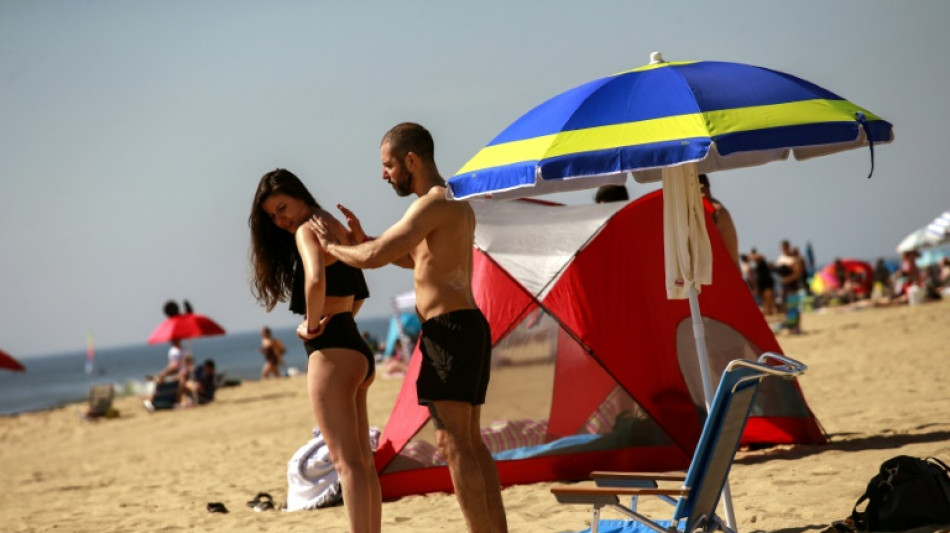
-
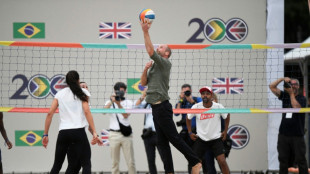 Prince William plays football, volleyball in Rio on climate trip
Prince William plays football, volleyball in Rio on climate trip
-
Jamaicans mobilize aid in aftermath of Melissa's wreckage
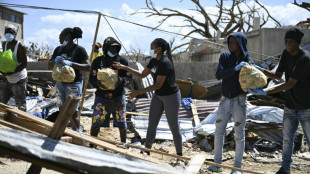
-
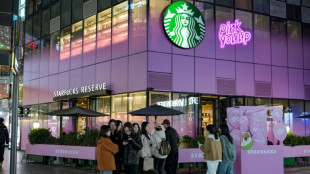 Starbucks cedes China control to Boyu Capital
Starbucks cedes China control to Boyu Capital
-
'Wild at Heart' actress Diane Ladd dies at 89
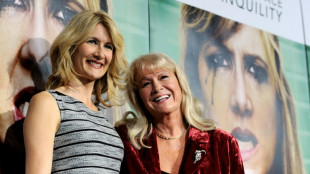
-
 Xhaka lifts Sunderland into fourth after Everton draw
Xhaka lifts Sunderland into fourth after Everton draw
-
Brazil records biggest annual fall in emissions in 15 years: report
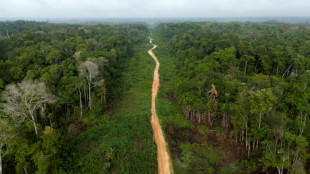
-
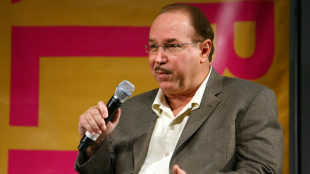 Victor Conte, mastermind of BALCO doping scandal, dead at 75: company
Victor Conte, mastermind of BALCO doping scandal, dead at 75: company
-
Trial opens in 1st US civil case on 2019 Boeing MAX crash

-
 Barrett brothers out of All Blacks' clash with Scotland
Barrett brothers out of All Blacks' clash with Scotland
-
Medieval tower partially collapses in Rome, trapping worker

-
 Arsenal's Arteta says injured Gyokeres out of Slavia Prague tie
Arsenal's Arteta says injured Gyokeres out of Slavia Prague tie
-
Alonso says 'quality' Wirtz helped get him Real Madrid job

-
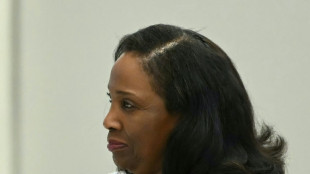 US Fed's Cook warns inflation to stay 'elevated' next year
US Fed's Cook warns inflation to stay 'elevated' next year
-
Blue heaven: huge crowds salute Los Angeles Dodgers in victory parade

-
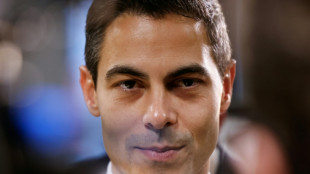 Dutch centrist Jetten clinches election win: final tally
Dutch centrist Jetten clinches election win: final tally
-
Mamdani extends olive branch to anxious NY business community
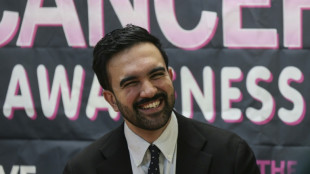
-
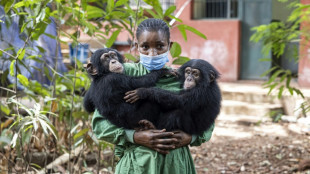 Sierra Leone chimpanzee sanctuary reopens after deforestation protest
Sierra Leone chimpanzee sanctuary reopens after deforestation protest
-
Shein bans sex dolls after France outrage over 'childlike' ones
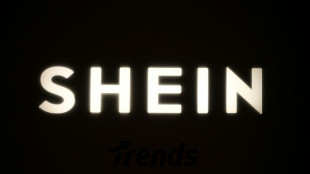
-
 England full-back Steward doubtful for Autumn rugby clash with Fiji
England full-back Steward doubtful for Autumn rugby clash with Fiji
-
Bayern know how to 'hurt' PSG, says Neuer

-
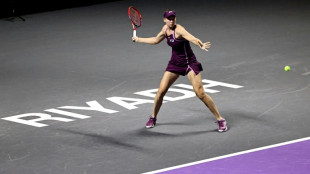 Rybakina downs Swiatek to reach WTA Finals last four
Rybakina downs Swiatek to reach WTA Finals last four
-
Ex-France international Ben Yedder to stand trial on rape charges

-
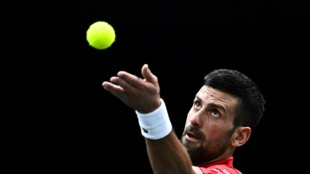 Djokovic confirmed for ATP Finals, says Italian federation boss
Djokovic confirmed for ATP Finals, says Italian federation boss
-
Trent should be remembered for 'great' Liverpool moments, says Slot

-
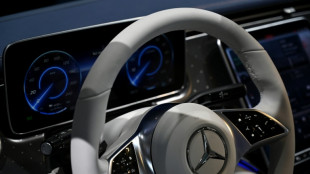 Stock markets diverge despite boost from AI deals
Stock markets diverge despite boost from AI deals
-
Prince William awed by Rio on climate-focused trip to Brazil
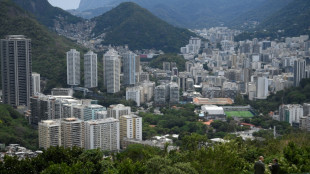
-
 Violence in Sudan's El-Fasher could be war crimes, says top court
Violence in Sudan's El-Fasher could be war crimes, says top court
-
Rybakina downs Swiatek in WTA Finals
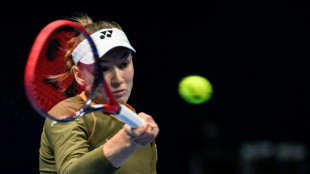
-
 Turkey, Muslim allies say Palestinian self-rule key to Gaza future
Turkey, Muslim allies say Palestinian self-rule key to Gaza future
-
Tens of thousands shelter as typhoon slams into Philippines
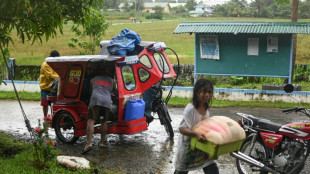
-
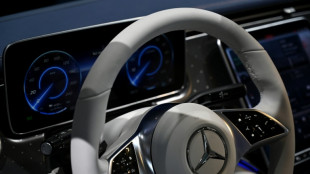 Stock markets rise as tech sector buoyed by fresh AI deal
Stock markets rise as tech sector buoyed by fresh AI deal
-
Vitinha says PSG-Bayern Champions League clash will show who's 'best'

-
 Arsenal: The unstoppable Premier League force?
Arsenal: The unstoppable Premier League force?
-
Denmark inaugurates rare low-carbon hydrogen plant
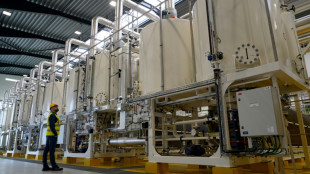
-
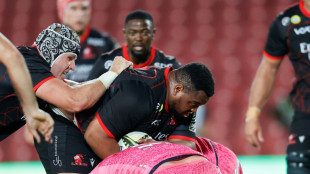 Springboks back Ntlabakanye call-up despite doping probe
Springboks back Ntlabakanye call-up despite doping probe
-
German plans to lower industrial power costs from January

-
 Christian, Muslim Nigerians push back on threatened US strikes
Christian, Muslim Nigerians push back on threatened US strikes
-
Nigeria's Rivers United paired with African champions Pyramids

-
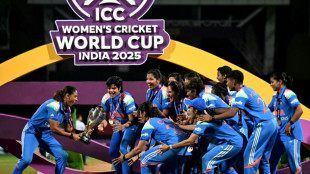 India women cricketers hail new era but challenges remain
India women cricketers hail new era but challenges remain
-
'Heroic' worker praised as man charged over UK train stabbings

-
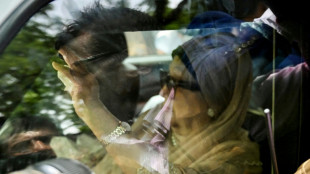 Bangladesh ex-PM Zia to contest elections: party
Bangladesh ex-PM Zia to contest elections: party
-
Tanzania president sworn in as opposition says hundreds killed in protests

-
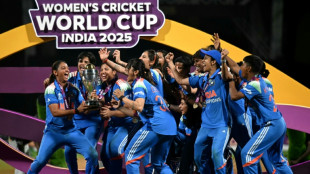 India announces $5.75 million reward for women cricket World Cup winners
India announces $5.75 million reward for women cricket World Cup winners
-
Spain regional leader resigns, a year after deadly floods
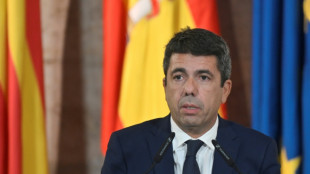
-
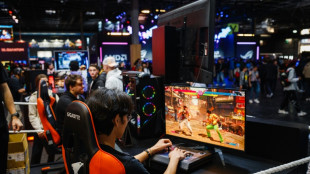 Video game creators fear AI could grab the controller
Video game creators fear AI could grab the controller
-
France threatens Shein ban if 'childlike' sex dolls reappear
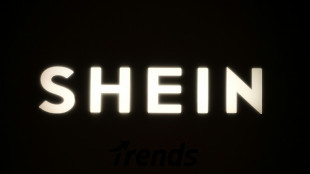
-
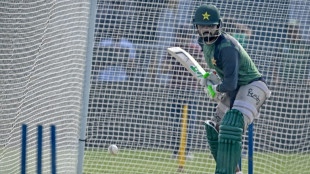 International cricket returns to Faisalabad with Pakistan-South Africa ODIs
International cricket returns to Faisalabad with Pakistan-South Africa ODIs
-
Afghan govt says quake kills 20, injures over 500

-
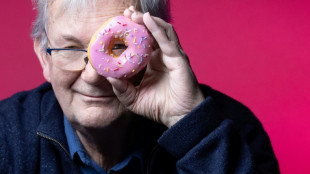 'We're all too rich,' says photo legend Martin Parr
'We're all too rich,' says photo legend Martin Parr
-
Tanzania president inaugurated as opposition says hundreds dead
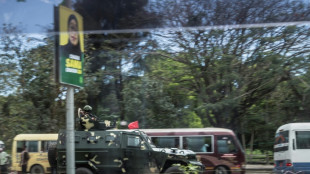
| RBGPF | -3.95% | 76 | $ | |
| SCS | -0.76% | 15.84 | $ | |
| AZN | -0.83% | 81.72 | $ | |
| NGG | -0.68% | 74.74 | $ | |
| RYCEF | 1.37% | 15.36 | $ | |
| BTI | 2.38% | 52.44 | $ | |
| BCC | -3.15% | 68.34 | $ | |
| RELX | -0.16% | 44.17 | $ | |
| CMSC | -0.34% | 23.67 | $ | |
| GSK | -1.1% | 46.35 | $ | |
| RIO | -1.95% | 70.37 | $ | |
| BCE | -0.84% | 22.67 | $ | |
| JRI | -0.14% | 13.88 | $ | |
| BP | -0.75% | 34.87 | $ | |
| CMSD | -0.38% | 23.9 | $ | |
| VOD | -5.89% | 11.38 | $ |

In raging summer, sunscreen misinformation scorches US
Dismissively tossing a tube of sunscreen over his shoulder, a bare-chested TikTok influencer declares that the cream causes cancer. He instead promotes "regular sun exposure" to his 400,000 followers -- contradicting US dermatologists fighting a surge in such dubious misinformation.
In the midst of a blazing summer, some social media influencers are offering potentially dangerous advice on sun protection, despite stepped-up warnings from health experts about over-exposure amid rising rates of skin cancer.
Further undermining public health, videos -- some garnering millions of views -- share "homemade" recipes that use ingredients such as beef tallow, avocado butter and beeswax for what is claimed to provide effective skin protection.
In one viral TikTok video, "transformation coach" Jerome Tan discards a commercial cream and tells his followers that eating natural foods will allow the body to make its "own sunscreen."
He offers no scientific evidence for this.
Such online misinformation is increasingly causing real-world harm, experts say.
One in seven American adults under 35 think daily sunscreen use is more harmful than direct sun exposure, and nearly a quarter believe staying hydrated can prevent a sunburn, according to a survey this year by Ipsos for the Orlando Health Cancer Institute.
"People buy into a lot of really dangerous ideas that put them at added risk," warned Rajesh Nair, an oncology surgeon with the institute.
- 'No safe tan' -
As influencers increasingly cast doubt on commercial sunscreen products, another US survey showed a dip in their use, with some 75 percent of Americans using sunscreen regularly, down from 79 percent in 2022.
The findings coincide with other trends showing rising public mistrust of established medical guidance -- including on Covid-19 and other vaccines -- and increasing reliance on influencers with little or no scientific knowledge.
Dermatologists are scrambling to disabuse people of the increasingly popular perception that higher levels of sun exposure are good for the skin.
"There is no safe tan," Daniel Bennett, a dermatologist and professor at the University of Wisconsin School of Medicine and Public Health, told AFP.
"The evidence that ultraviolet light exposure is the primary preventable driver of skin cancer is overwhelming," he added.
Many of the misleading or false claims come from influencers seeking to monetize their content on social media platforms, an echo chamber where sensational and false claims often drive engagement, experts say.
Some content creators are leveraging "sunscreen skepticism" to "sell their own supplements or endorse alternative all-natural sunscreens," Eric Dahan, founder of the influencer marketing agency Mighty Joy, told AFP.
- 'Sun paranoia' -
Dahan pointed out one Instagram post that advised against "wearing sunscreen constantly" while promoting a range of skincare products.
"Say goodbye to sun paranoia," the emoji-laden post said. "Catch some (guilt-free) rays this summer."
Clutching a surfboard on a beach, another bare-chested Instagram influencer says he rejects sunscreen.
"Do I worry about skin cancer? I do not," he posted, while promoting "animal-based sunscreen" made from beef tallow.
Tallow -- essentially rendered, purified beef fat -- alone has no ability to block ultraviolet radiation, said Megan Poynot Couvillion, a dermatologist practicing in Texas.
"I don't see a problem with using it on the skin as an emollient, but absolutely not as a sunscreen," she told AFP.
The US Food and Drug Administration has called for more research into the ingredients in commercial sunscreens, but it does recommend their use, noting that excessive sun exposure is a major contributor to skin cancer.
Homemade sunscreens "lack effective sun protection," leaving users vulnerable to sunburn, premature skin aging and skin cancer, the American Academy of Dermatology warns.
Some influencers' recipes include zinc oxide, a known sun protector. But concocting sunscreen at home that will effectively block UV radiation is unrealistic, said Adam Friedman, professor at the George Washington University School of Medicine and Health Sciences.
"There's no way you're making this in your basement," Friedman told AFP.
P.Keller--VB




